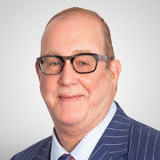Sponsored Content - Archegos, a $10 billion fund, may have lost $100 billion. The final number is not yet settled and may not be for several months, but the loss is huge and it all seems to have happened within 48 hours, says Mike Adams, president and principal, Adams Financial Concepts, LLC.
How did it happen and who is Archegos, anyway? And how could a fund worth $10 billion lose $100 billion?
Archegos is a Greek word for "one who leads the way", and what a way it turned out to be. Archegos was founded as a family office by Bill Hwang. Hwang cut his teeth as one of the so-called "tiger cubs" of investing. Julian Robertson ran the very successful Tiger Management hedge fund, and his "tiger cubs" were the associates who spun off to run their own hedge funds.
Bill Hwang set up a hedge fund, but was convicted of insider trading in 2012, was fined, and banned from the investment industry.
Being banned did not stop Hwang. He set up a family office. Family offices are generally firms which have just one very wealthy family as their client. They are not registered with the SEC nor any other regulatory body. Hwang was free to do what he wanted without any oversight whatsoever.
Hwang was trading on margin. The Federal Reserve's Reg T establishes the initial margin rate at 50%. What that means is in order to buy $1 million in equity securities, stocks, the investor has to put up at least $500,000. But there are ways around Reg T, and Hwang took advantage of these loopholes, or SWAPS. These are not the infamous credit default swaps we heard about during the Great Recession.
These SWAPS were structured as such: A bank or brokerage will enter into a partnership with an investor like Archegos. The investor will put up 10% or 15%, and the banks will loan the money for the remainder of the purchase. So Archegos could put up $1 billion to buy $10 billion of stock. That is exactly what they did. The banks had money and they were loaning it at a good rate of interest.
The banks and brokerages who entered into these arrangements were executed through their "prime brokers" arm. Prime brokers deal with hedge funds and family offices. Hwang was dealing with multiple banks like Goldman, Wells Fargo, Morgan Stanley, Credit Swiss, Nomura, Deutsche Bank, and probably others.
Hwang was dealing with each bank and brokerage prime broker individually and keeping everyone in the dark about what he was doing and how extended Archegos was. Hwang was invested in few companies. Archegos owned an estimated 68% of GSX Tech Ed (GSX), a technology-driven education company, 40% of IQIYi (IQ), a Chinese entertainment company, 29% of ViacomCBS (VIAC), plus a number of others. When Viacom's price dropped, it began a domino impact within a couple days!
It could be months before we know how big the losses will be. For Hwang's Archegos' $10 billion was wiped out. The banks who worked with Archegos have lost another $50 to $100 billion or more. Those losses will impact earnings and shareholder value for the holders of those bank stocks.
Things that have never happened before, happen all the time. Just in the past few months we have seen hedge funds losing billions over their GameStop (GME) shorting. Now we see Archegos lose an eye-popping amount not only for the fund itself but also for a number of bank prime brokerages.
There is a difference between what Adams Financial Concepts does and what Archegos did. AFC limits margin exposure, so even in big market drops there have been few margin calls. Additionally, our accounts are individual and transparent: Clients can see them 24/7. There is nothing mysterious or hidden. Further, the results clients have seen are driven by the increases in the prices of the stocks in the portfolios, not by excessive leverage margin. It is about superior stock selection, not leverage. And yes, I always have to say that past performance is no guarantee of future performance. But I'll stick with what we do.
Learn more about Mike Adams at Adams Financial Concepts.










